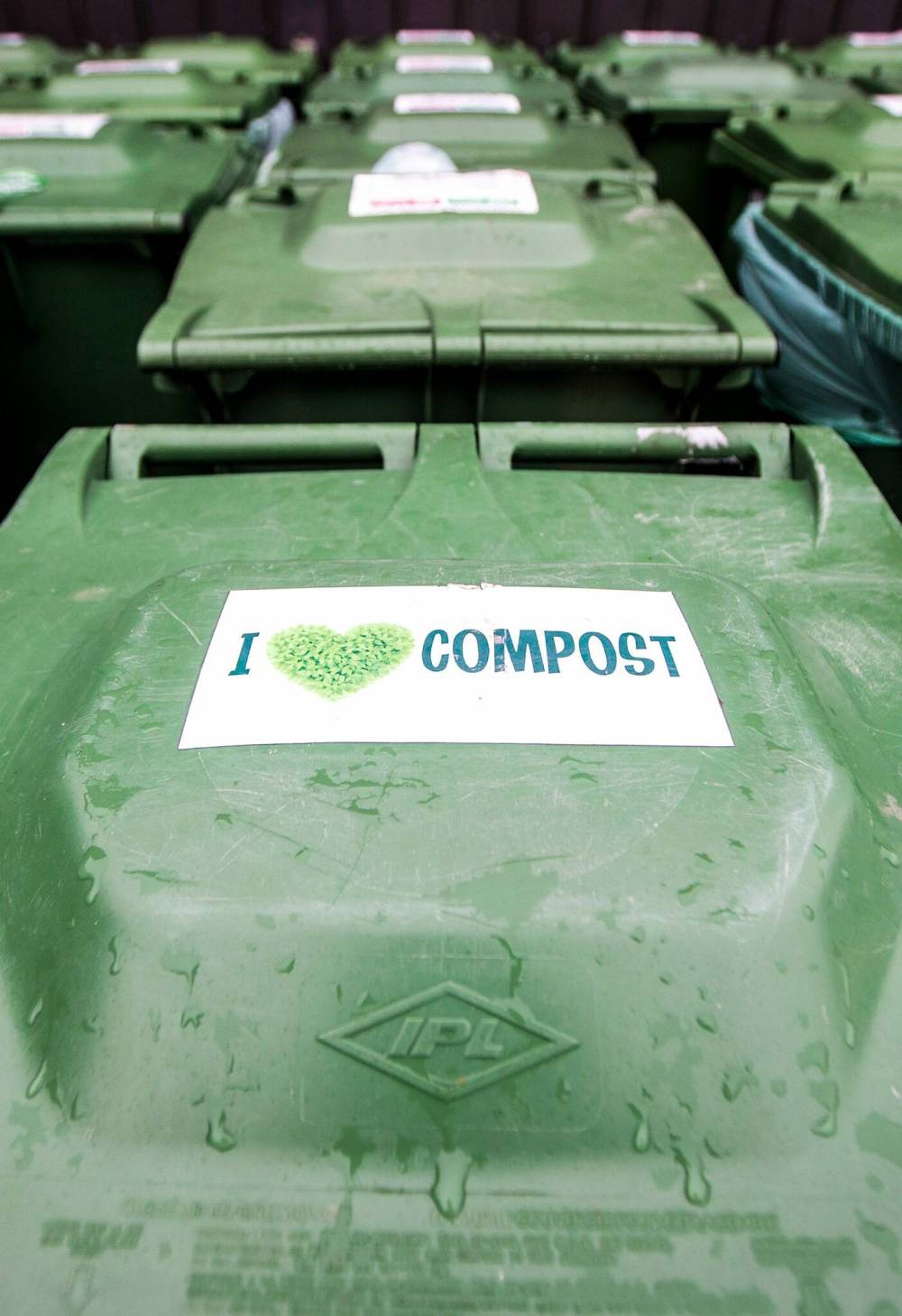Time to make green dream a reality
Advertisement
Read this article for free:
or
Already have an account? Log in here »
To continue reading, please subscribe:
Monthly Digital Subscription
$19 $0 for the first 4 weeks*
- Enjoy unlimited reading on winnipegfreepress.com
- Read the E-Edition, our digital replica newspaper
- Access News Break, our award-winning app
- Play interactive puzzles
*No charge for four weeks then billed as $19 plus GST every four weeks. Offer only available to new and qualified returning subscribers. Cancel any time.
Read unlimited articles for free today:
or
Already have an account? Log in here »
Hey there, time traveller!
This article was published 18/09/2022 (829 days ago), so information in it may no longer be current.
Call it the green dream. Someday soon, green organic-collection bins will join the blue and grey bins that are customarily rolled out weekly in Winnipeg driveways and back lanes.
For people who dare such a dream, an experimental organic-collection program that ended on Sept. 12 offered an example of the reality that could be.
The two-year-old pilot project collected organic waste from about 4,000 households in the neighbourhoods of Inkster Gardens, Linden Woods, Linden Ridge, Daniel McIntyre, St. George and Mission Gardens. A report on the program is headed to city council, and the slate of councillors chosen in the Oct. 26 election is expected to debate the feasibility of a city-wide collection program.

MIKAELA MACKENZIE / WINNIPEG FREE PRESS The Compost Winnipeg headquarters in Winnipeg on Tuesday, May 31, 2022. For JS story. Winnipeg Free Press 2022.
Green compost bins common in other cities, but not Winnipeg
MIKAELA MACKENZIE / WINNIPEG FREE PRESS
If councillors vote to expand the program, as they should, the benefits will include ending Winnipeg’s ignominious title as the largest Canadian city without an organic-waste collection program.
It wasn’t supposed to take this long. City council had proposed an organic-waste pilot program that would start in 2014 and be ready for full-scale expansion by 2017. But the proposal for the initial pilot program was shelved after the 2014 municipal election brought a new mayor and council concerned that the cost would increase tax bills at a rate that might rile citizens.
This is the historical context for the latest initiative, which could be dubbed Compost Pilot Project 2.0. It was launched in 2020 by Compost Winnipeg, an initiative of the Green Action Centre, a Manitoba non-profit focused on green-living programs.
The service charges $35 per month for residential clients and $134 monthly for commercial clients. For their money, clients of Compost Winnipeg get the assurance they are doing right by the planet in an important way. By diverting organic waste from other refuse, they help reduce greenhouse-gas emissions at Brady Road municipal landfill, where it’s estimated between 40 and 60 per cent of waste is organic.
The rationale behind separating organics from other waste is that organic matter needs plentiful oxygen to decompose speedily. When it’s crammed within other waste and often smothered in plastic bags, the decomposition process is thwarted to the point where the material releases methane, a powerful greenhouse gas. It’s why the Brady landfill is the second-largest emitter of GHGs in Manitoba.
Another benefit of diverting organic waste is that it can become a form of soil nutrition called humus. Compost Winnipeg uses it to improve the health of the Prairie Green Landfill in Stony Mountain.
It’s a win/win proposition: reduce greenhouse gas emissions while also improving the soil on which the composted matter is properly aired out and spread.
The next step toward Winnipeg’s green dream should be for the new city council to debate how, not if, Winnnipeg will move forward on compost collections. How often will organics be collected? Separating organic waste from other waste will decrease contents of other bins, so perhaps regular garbage collection can be reduced to every two weeks and compost can be collected on alternate weeks.
The most contentious issue will undoubtedly be requiring residents to pay the added cost of the new service. It’s to be hoped the increasingly dire reports of climate-change impact will inspire Winnipeggers to remember the importance of reducing GHG emissions.
For some people, it will mean their inaugural visit to a green mindset that thinks of food waste not as garbage, but as a substance that can enrich the land. It’s a way to give back to a planet in dire need of support.


